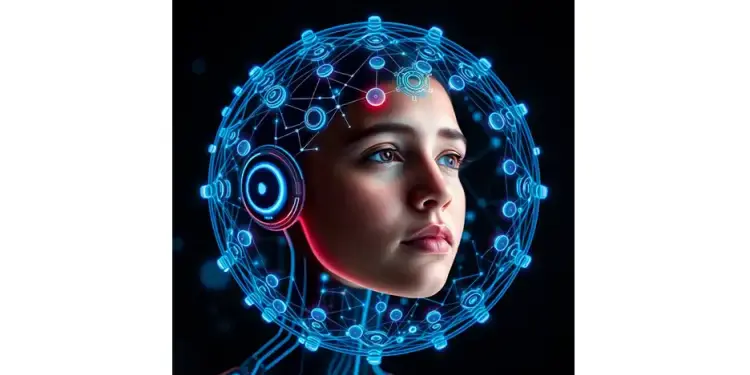In a world in perpetual mutation, Tunisia is at the dawn of a digital revolution marked by the rapid development of artificial intelligence (AI).
This technological advance, which affects fields as varied as education, health and agriculture, offers innovative prospects for the future of the country. Nevertheless, the development of AI also raises questions as to its impact on children and youth, and encourages to rethink the supervision of its use in the school environment.
Future tools for education and development
AI today allows Tunisian educational establishments to innovate in their teaching methods. Thanks to intelligent applications, teachers can adapt their courses according to the specific needs of each student, thus promoting personalized and interactive learning.
These digital tools offer the possibility of closely monitoring students’ progress, quickly identifying gaps and adjusting programs accordingly. In addition, the use of AI in the analysis of school data contributes to better management of educational resources and to the optimization of teaching methods.
The risks of unpleasant use
However, this digital transition is not without challenges. The early and prolonged exposure of children to AI screens and applications can lead to technology dependence, thus limiting the development of real social interactions.
In addition, the collection and exploitation of personal data by certain tools pose questions of confidentiality and security. Experts insist on the need to rigorously supervise the use of these technologies in order to preserve the mental health and well-being of young people, while ensuring that these tools remain educational supplements and not substitutes for essential skills.
Restrictions put in place in certain countries
Faced with these concerns, several countries have chosen to establish targeted restrictions on the use of AI tools in the school framework. For example, in Italy, certain local authorities have temporarily limited access to AI applications during exam periods, in order to prevent any attempted cheating and protect the integrity of the educational process.
Likewise, in various establishments in France, specific measures supervise the use of these technologies to avoid over-dependence and guarantee that students continue to develop their own critical and creative skills. These examples illustrate an international desire to reconcile technological innovation and preservation of traditional teaching methods.
Nostalgia for an era of children’s ingenuity
It is interesting to remember that in the past, children were not limited to passively consuming digital content. They invented their own games and made toys themselves from simple materials, giving free rein to their imagination.
This game mode, based on creativity and social interaction, favored the development of essential skills such as problem solving, cooperation and autonomy. The contrast to the current digital age recalls the importance of maintaining a balance between the use of modern technologies and the return to fun and creative activities.
Towards a harmonious balance between innovation and tradition
The evolution of artificial intelligence in Tunisia is a great opportunity to modernize education and stimulate innovation. However, for these advances to really benefit youth, it is crucial to adopt a measured and balanced approach. Inspired by the restrictive measures implemented in certain countries and by valuing traditional game methods, Tunisia can offer its children an educational environment that combines the best of technology and the very essence of human creativity.
In conclusion, the development of AI opens the way to significant transformations in Tunisian society. In order for these changes to be beneficial, it is necessary to implement educational and regulatory policies which frame the use of technologies while preserving the inventive spirit and the human interactions which have always constituted the foundation of the development of young generations.








